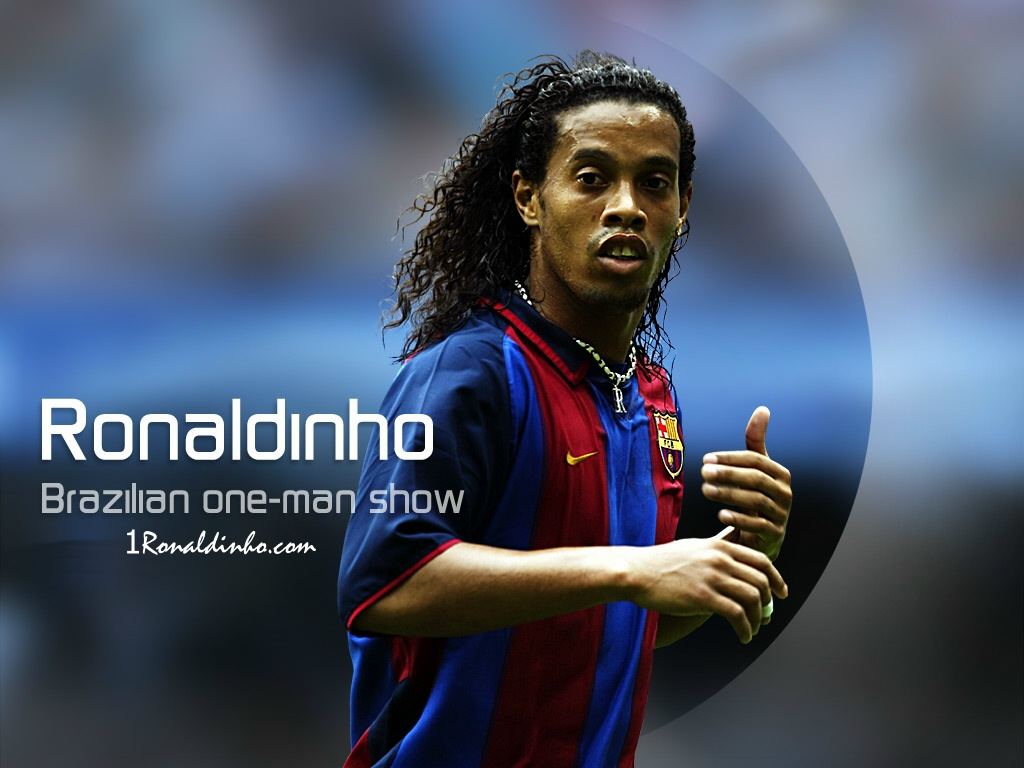Soccer Player(1976-)
QUICK FACTS
NAME: Ronaldo
OCCUPATION: Soccer
Players
BIRTH DATE: September
18, 1976 (age 38)
PLACE OF BIRTH: Itaguai, Brazil
AKA: Ronaldo Ronaldo Nazário de Lima
FULL NAME: Ronaldo Luís Nazário de Lima
NICKNAME: "Fenômeno""Il Fenomeno"
QUOTES
“You
run, I don't. I score goals.”
—Ronaldo
Soccer
player Ronaldo starred for the Brazilian national team and several European
clubs over the course of a career that spanned nearly two decades.
Synopsis
Born on September 18, 1976, in Itaguaí, Brazil, Ronaldo
established himself as an unstoppable scorer for European soccer teams in the
mid-1990s. He bounced back from a disappointing finish to the 1998 World Cup
and a series of knee injuries to lead Brazil to victory in the 2002 World Cup,
and retired in 2011 as one of the game's all-time greats.
Ronaldo Luís Nazário de Lima was born on September 18, 1976,
in Itaguaí, Brazil. His parents, Nélio Nazário de Lima and Sônia dos Santos
Barata, separated when he was 11, and Ronaldo dropped out of school shortly
afterward to pursue a soccer career.
Ronaldo joined the Social Ramos indoor soccer team at the
age of 12 before moving on to São Cristóvão, where he was discovered by his
future agents, Reinaldo Pitta and Alexandre Martins. The two arranged for the
sale of their new client's contract to Cruzeiro, a professional club in the
city of Belo Horizonte.
Ronaldo showcased his impressive goal-scoring ability for
Cruzeiro, helping the club to its first Brazil Cup championship in 1993. The
talented 17-year-old was named to the Brazilian national team for the 1994
World Cup in the United States, though he watched from the bench as his
countrymen won the Cup.
Ronaldo hit the ground running when his contract was sold to
PSV Eindhoven in the Netherlands in 1994, averaging nearly a goal per game
against top-notch European competition. Two years with PSV Eindhoven were
followed by one with FC Barcelona and then a move to Inter Milan, a four-year
period in which Ronaldo twice won FIFA World Player of the Year and carried his
teams to victory in the Dutch and Spanish Super Cups.
During his peak, Ronaldo possessed an unstoppable
combination of speed and power, equally capable of plowing through defenders as
he was of nimbly sidestepping their attacks and accelerating away. Adding to
his aura was an aversion to practicing and training hard, an attitude that did
little to stem his dominance.
Big things were expected from Ronaldo and Brazil in the 1998
World Cup in France, but while he was named the Golden Ball winner as the Cup's
best player, the tournament ended on a sour note when Ronaldo suffered a
convulsive fit before the final and was ineffective in a 3-0 loss to the host
country. Bigger setbacks followed when Ronaldo ruptured a knee tendon in
November 1999 and reinjured the knee five months later, knocking him out of
action for almost two years.
Ronaldo made a triumphant return in time for the 2002 World
Cup in South Korea and Japan, netting eight goals to win the Golden Boot Award
as the Cup's top scorer while leading Brazil its fifth world championship.
Ronaldo transferred to Real Madrid that fall, winning the FIFA World Player of
the Year Award a third time before leading his new club to La Liga and Spanish
Super Cup championships in 2003.
Ronaldo appeared in one final World Cup for Brazil in 2006.
Although Brazil was bounced in the quarterfinals by France, Ronaldo scored
three times to set a record with 15 career goals in World Cup play.
Ronaldo transferred to AC Milan in 2007, but in 2008 he
sustained another serious knee injury and his contract was not renewed after
the season. The Brazilian legend returned to his home country in 2009 to play
for Corinthians, helping them to victories in the Campeonato Paulista league
and Brazil Cup that year, before announcing his retirement in February 2011.
Post-Career
and Legacy
Ronaldo
is recognized as one of the best soccer players in history. In 2004, he was
named to the FIFA 100, a list of the greatest living players compiled by the
legendary Pelé, and in 2010, he was deemed Goal.com's "Player of the
Decade."
Often
criticized for not training hard as a pro athlete, Ronaldo set himself up for
an active post-playing career by founding 9ine, a sports marketing agency. He
also joined the organizing committees for the Brazil-based 2014 World Cup and
2016 Olympics, ensuring that he would remain an influential figure in Brazilian
sports and international affairs for years to come.



